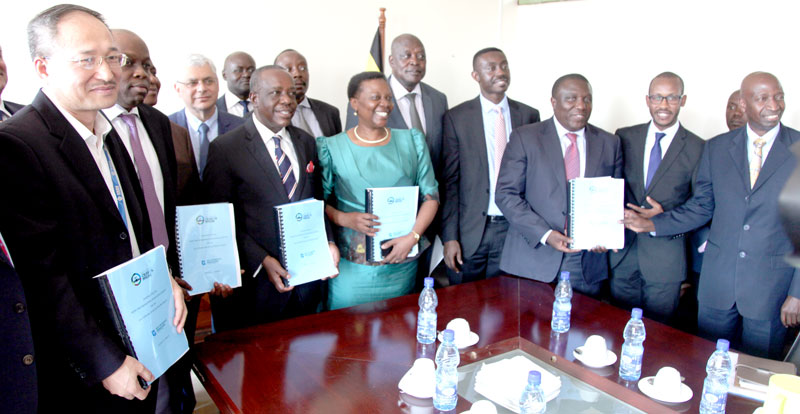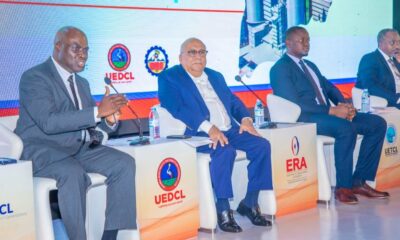Business
Design of world’s longest heated pipeline launched
Officials from Uganda and Tanzania’s ministries of energy, cost/benefit and environmental impact of the oil pipeline.
The Minister of Energy Irene Muloni told journalists at the launch that the East African Crude Oil Pipeline (EACOP) will project includes the construction and operation of 1445 km of insulated 24″inch pipeline through Uganda and Tanzania. The project will also see 8 power stations constructed to supply high voltage power to heat the pipeline, as well as a marine export terminal at Chongoleani, near Tanga Port.
“The pipeline and facilities will be designed to export the Lake Albert crude oil reserves. Due to the waxy and viscous fluid properties, the pipeline and the fluid will be heated above 50°C. Once completed, the EACOP project will be the longest electrically heated pipeline in the world,”
Although several pre-development studies have been carried out on the pipeline route estimating the cost to be about US$4bn, the the latest study is estimated to reduce the cost since the land requirement has been reduced.
A statement from the ministry of energy points out that one of the main objectives of the study is identify a route that minimizes impacts on the environment, on local communities, on project development costs while offering the highest system availability to ensure continuous and safe operations.
The pipeline will start in Kabaale in Bunyoro to Tanga route.
According to Muloni: “The study will reduce the pipeline corridor width from 2km to 30m, using technical, environmental and social data which are currently being collected through the ongoing surveys, define the project technical standards, the project basis of design, the qualifications of specific equipments, the definition of the early works and of course the project Basic Engineering.”
Who will do it?
In December 2016, the Front End Engineering Design (FEED) contract was awarded to Gulf Interstate Engineering (GIE) based in Houston, USA. The selection of GIE as FEED contractor was based on the significant value that they are providing to the project by (i) having conducted the studies related to the Tanzania route, including the due diligence and ground truthing, (ii) having an A team fully mobilized and (iii) having made a very competitive offer as compared to industry benchmarks.
During construction of the pipeline that will last for three years, the pipeline is estimated to create between 6, 000 to 10,000 jobs, while some 1000 jobs will be created during the operation phase of the pipeline.
Comments



















